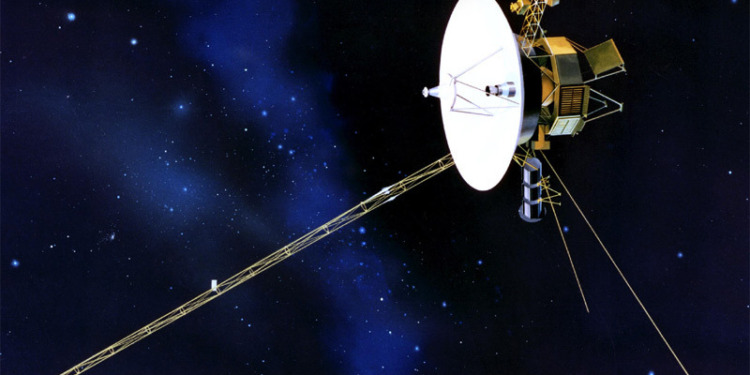Voyager 2 has journeyed over 12 billion miles from Earth. Beyond the gathered scientific knowledge, it’s true significance lies in its sustainable design.
A Journey Beyond Earth
When launched in 1977, the main objective of the spacecraft was to explore the outer gas giants: Jupiter, Saturn, Uranus, and Neptune. Remarkably, it succeeded in providing invaluable data and images of these distant planets and their moons, rewriting our understanding of the outer reaches of the solar system.
Some impressive firsts achieved by Voyager 2 include:
- Flying past Uranus as the first human-made object to do so.
- Discovering Jupiter’s 14th moon.
- Finding five moons (Proteus, Larissa, Despina, Galatea, Thalassa, and Naiad), four rings, and a “Great Dark Spot” on Neptune.
- In 2019, Voyager 2 adjusted its direction using its secondary set of thrusters, which had not been used since its 1989 encounter with Neptune.
Pics or it didn't happen. 📸
On this day in 1979, I made my closest approach to Jupiter, flying within 350,000 miles (563,000 km) of the planet’s cloud tops and confirmed the existence of a thin ring surrounding the planet. – V2 pic.twitter.com/DrqgHsoSUn
— NASA Voyager (@NASAVoyager) July 9, 2023
Sustainable Energy Solutions
The longevity of the Voyager 2 mission is an astounding accomplishment in itself.
Initially, Voyager 2, like its twin Voyager 1, was powered by three radioisotope thermoelectric generators (RTGs) that converted the heat generated by the decay of plutonium-238 into electricity. These RTGs provided a constant and reliable power source to run the spacecraft’s systems and instruments.
The power output of plutonium-238 decreased as time passed, posing a challenge for NASA to maintain power. Scientists and engineers devised a plan to prevent the shutdown of a science instrument on Voyager 2 earlier this year.
They decided to periodically turn off some non-essential instruments and systems to extend the mission life of Voyager 2 while still keeping critical operations running smoothly. The spacecraft’s power management strategy means that Voyager 2 can surpass its initial design expectations and continue its scientific quest beyond 2026.
The Green Footprint of Deep Space Exploration
Deep space exploration began with crewless spacecraft launches in the mid-20th century. However, the limited resources presented sustainability challenges. These included focusing on energy efficiency, waste management, and the environmental impact on celestial bodies.
Related Articles: Space Cooperation with Russia in Jeopardy | Expanding Offshore Oil and Gas Drilling Is Incompatible With a Livable Future |
Voyager 2 has overcome many challenges and surpassed expectations, proving that long-term deep space exploration is achievable. The spacecraft’s efficient energy usage has extended its mission and provided scientists with valuable insights into the universe.
Additionally, it has inspired the development of spacecraft that use renewable or recyclable energy sources to minimise space debris.
The Quest for Sustainable Development
Beyond the achievements of Voyager 2 lies a profound realisation.
Despite its inherent challenges, space exploration mirrors humanity’s quest for sustainable development on Earth. By pushing the boundaries of knowledge and technology, such missions inspire us to find solutions to global challenges, including energy scarcity and climate change.
The same dedication and perseverance that sustain Voyager 2’s journey should encourage sustainable development on our home planet.
A Unique Voyage to Sustainability
NASA’s spacecraft is more than just a spacecraft exploring distant worlds. It symbolises humanity’s journey towards sustainability. The innovative power strategy showcases the importance of energy efficiency in prolonging the lifespan of space missions.
As we explore the cosmos, it’s important to remember the lessons from Voyager 2, particularly the importance of sustainable development and energy efficiency.
Editor’s Note: The opinions expressed here by the authors are their own, not those of Impakter.com — In the Featured Photo: Model of the Voyager spacecraft. Featured Photo Credit: NASA.










